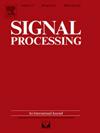Universum driven adaptive robust Adaboost twin extreme learning machine imbalance learning framework for pattern classification
IF 3.4
2区 工程技术
Q2 ENGINEERING, ELECTRICAL & ELECTRONIC
引用次数: 0
Abstract
Pattern recognition and machine learning research has demonstrated that Universum, as a third class distinct from the positive and negative classes, can be integrated with prior knowledge to improve the generalization performance of a model. This approach enables the incorporation of prior knowledge into the learning process, facilitating the development of more accurate models. This paper proposes a novel learning framework, termed the Universum-driven adaptive robust AdaBoost twin extreme learning machine imbalance learning framework (ARATELM), for addressing class imbalance classification problems. In this framework, a new generalized smooth uncapped adaptive robust loss function called is designed to improve the robustness of ARATELM. The generalized smooth uncapped adaptive robust loss function aims to address the problems caused by the capped loss function , which ignores normal data points and introduces non-differentiability. Concurrently, effectively inherits the adaptability of through the utilization of the adaptive parameter, , during the learning process. This enables the selection of diverse robust loss functions for different learning tasks, thereby enhancing the generalization performance of our method. Furthermore, the Universum data are taken into account in the proposed method, and prior information regarding the distribution of said data is provided; this enhances the generalization performance of the model. Additionally, the learning impact of our approach has been optimized through the integration of AdaBoost into ARATELM. Comprehensive experimental results across various class imbalance scenarios demonstrate that our presented method outperforms other methods in terms of robustness, classification accuracy, and other critical performance metrics.
Universum驱动的自适应稳健Adaboost双极限学习机失衡学习框架的模式分类
模式识别和机器学习研究表明,Universum作为区别于正类和负类的第三类,可以与先验知识相结合,提高模型的泛化性能。这种方法能够将先验知识整合到学习过程中,促进更准确模型的开发。本文提出了一种新的学习框架,称为universum驱动的自适应稳健AdaBoost双极限学习机不平衡学习框架(ARATELM),用于解决类不平衡分类问题。在此框架下,设计了一种新的广义光滑无上限自适应鲁棒损失函数Lθ(u)来提高ARATELM的鲁棒性。广义光滑无上限自适应鲁棒损失函数Lθ(u)旨在解决上限损失函数Lθ(u)忽略正态数据点和引入不可微性所带来的问题。同时,Lδ(u)通过在学习过程中利用自适应参数δ,有效地继承了Lθ的自适应性。这使得我们可以为不同的学习任务选择不同的鲁棒损失函数,从而提高我们方法的泛化性能。此外,在所提出的方法中考虑了Universum的数据,并提供了有关所述数据分布的先验信息;这提高了模型的泛化性能。此外,通过将AdaBoost集成到ARATELM中,我们的方法的学习效果得到了优化。在各种类失衡场景下的综合实验结果表明,我们提出的方法在鲁棒性、分类准确性和其他关键性能指标方面优于其他方法。
本文章由计算机程序翻译,如有差异,请以英文原文为准。
求助全文
约1分钟内获得全文
求助全文
来源期刊

Signal Processing
工程技术-工程:电子与电气
CiteScore
9.20
自引率
9.10%
发文量
309
审稿时长
41 days
期刊介绍:
Signal Processing incorporates all aspects of the theory and practice of signal processing. It features original research work, tutorial and review articles, and accounts of practical developments. It is intended for a rapid dissemination of knowledge and experience to engineers and scientists working in the research, development or practical application of signal processing.
Subject areas covered by the journal include: Signal Theory; Stochastic Processes; Detection and Estimation; Spectral Analysis; Filtering; Signal Processing Systems; Software Developments; Image Processing; Pattern Recognition; Optical Signal Processing; Digital Signal Processing; Multi-dimensional Signal Processing; Communication Signal Processing; Biomedical Signal Processing; Geophysical and Astrophysical Signal Processing; Earth Resources Signal Processing; Acoustic and Vibration Signal Processing; Data Processing; Remote Sensing; Signal Processing Technology; Radar Signal Processing; Sonar Signal Processing; Industrial Applications; New Applications.
 求助内容:
求助内容: 应助结果提醒方式:
应助结果提醒方式:


